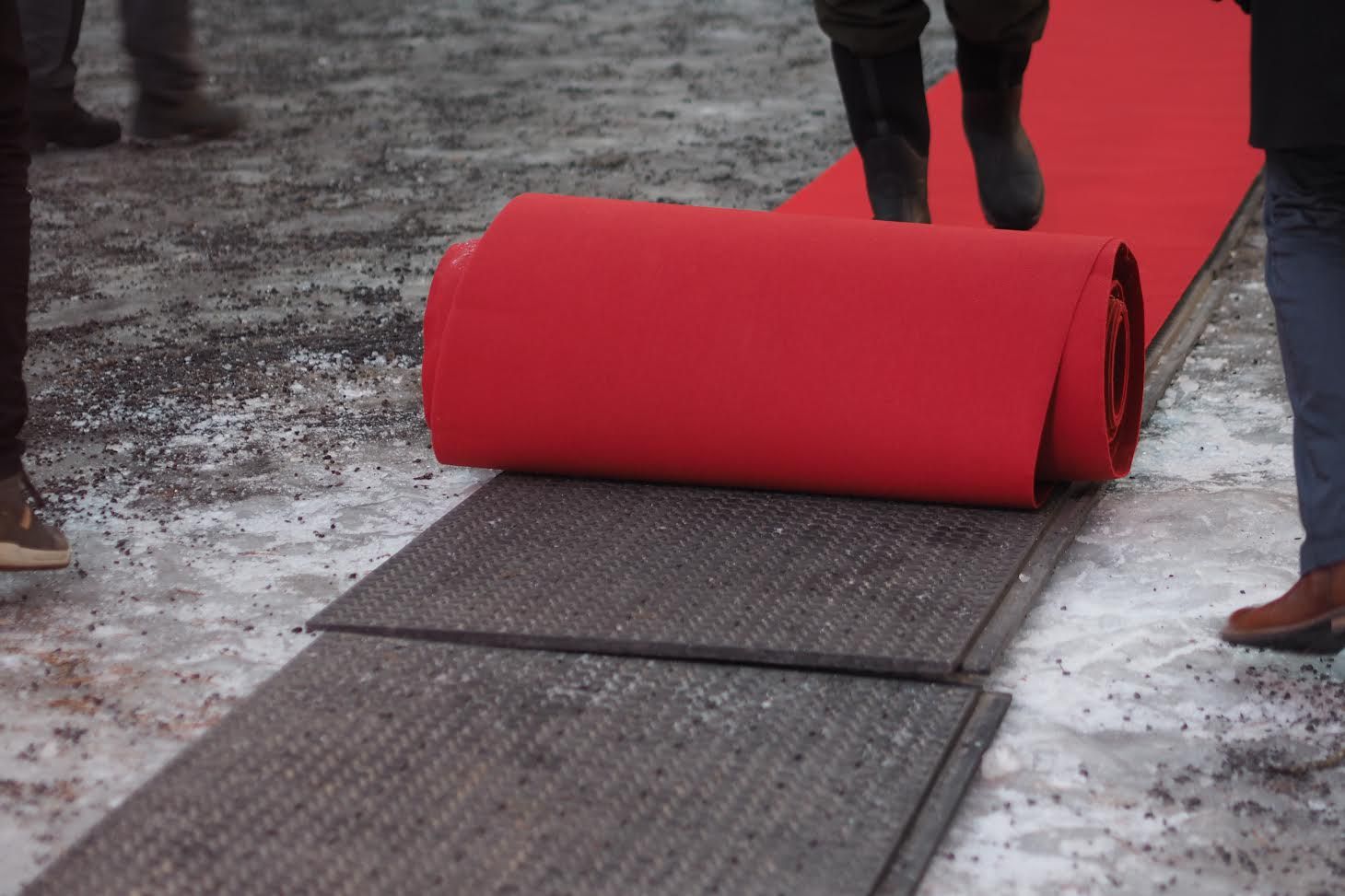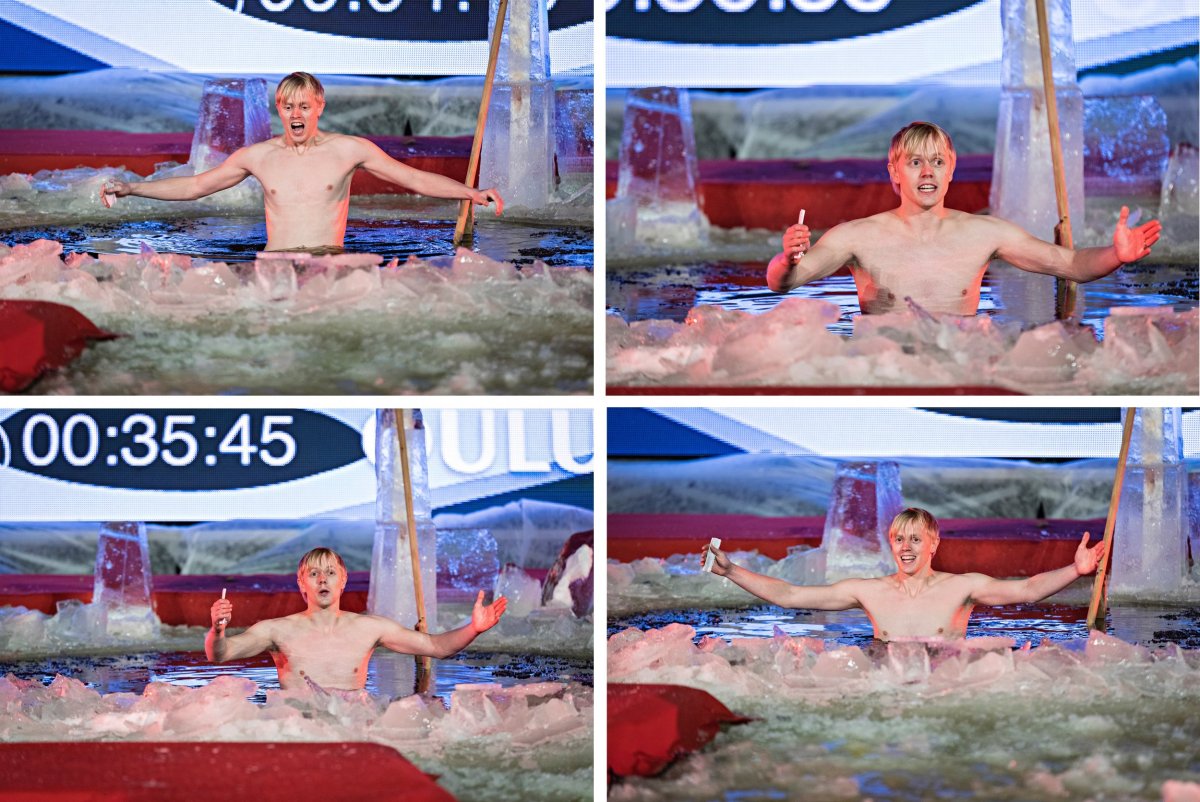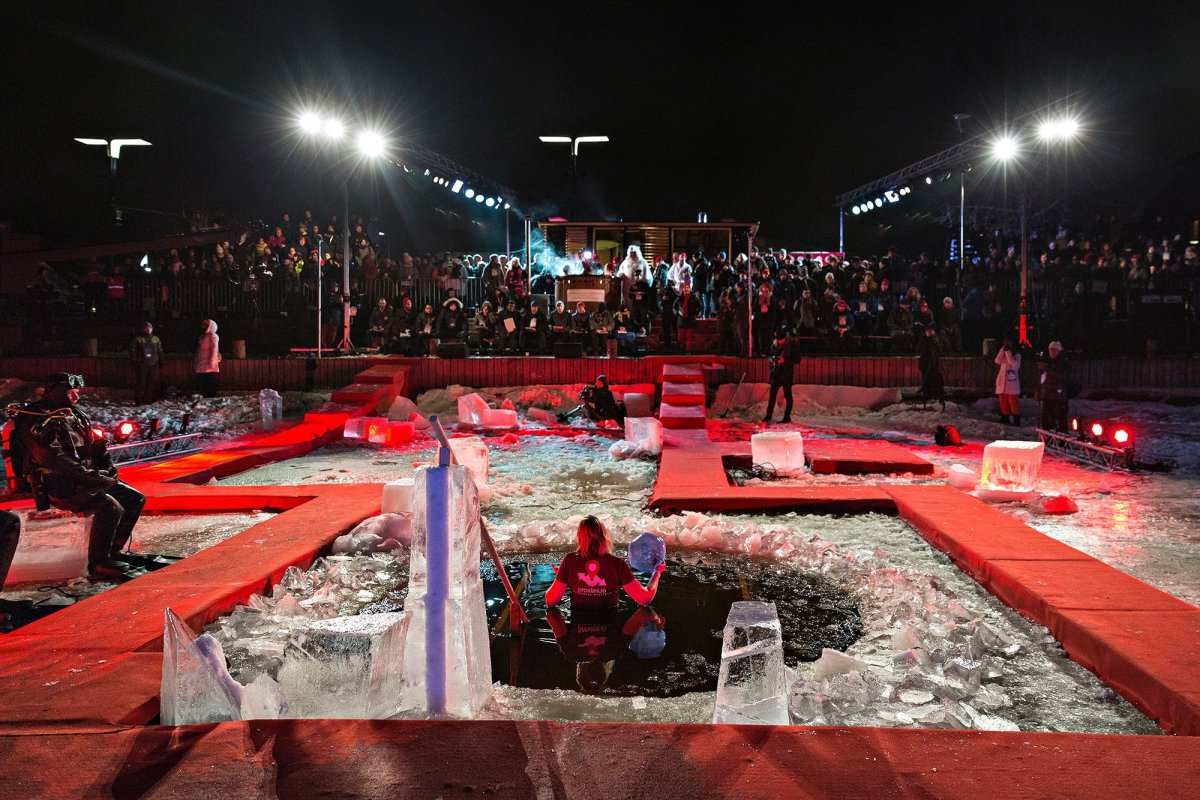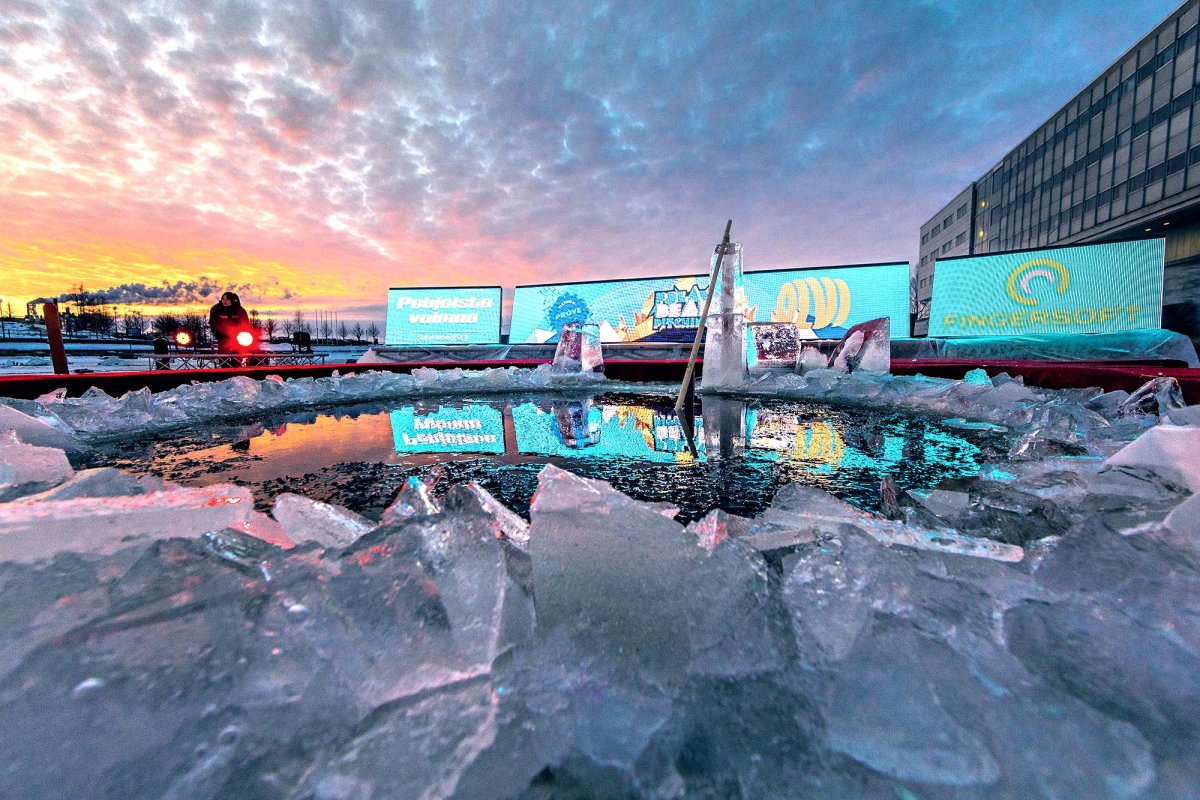
It's February in northern Finland and everything has been frozen for months. Standing chest deep in the Baltic Sea, in a hole carved out of the ice, I take a deep breath and face the audience.
I'm in Oulu, a city in the Nordic nation that is home to air guitar championships, nuclear metal music and former mobile phone giant Nokia. Just over 100 miles from the Arctic Circle, I had come to the self-proclaimed capital of northern Scandinavia to visit the headquarters of the once mighty phone maker, but I'd had the fortune—or perhaps misfortune—to sit next to a cheery-faced woman called Mia Kemppaala at dinner the night before in my hotel.
Kemppaala, whose business card describes her as a "weaver of opportunities", told me she was the founder of something called Polar Bear Pitching; a competition where startups from around the world get the opportunity to pitch their ideas to a panel of investors for a chance of winning 10,000 euro ($10,573) and a trip to Silicon Valley. The only catch is they have to do it from an ice hole.

The idea for Polar Bear Pitching came in 2013, after several technology startups emerged from the wreckage of Nokia. The Finnish firm's failure to keep up with the pace of mobile internet developments and the subsequent sale of its mobile division to Microsoft left Oulu with thousands of highly trained, highly educated residents without a job, but with plenty of ideas to create their own companies. Polar Bear Pitching, Kemppaala thought, would provide a platform for them.
Read more: Is Nokia planning a comeback?
"It's all about sisu," she tells me. Sisu is a Finnish word with no direct translation in English; it describes a uniquely Finnish characteristic and I have a hard time properly understanding its meaning. According to a report in the New York Times from 1940, sisu is a "compound of bravado and bravery, of ferocity and tenacity, of the ability to keep fighting after most people would have quit, and to fight with the will to win." The Urban Dictionary describes it as a "word used to typify the Finnish spirit."
Kemppaala tells me it is this trait that helped Oulu through this difficult time: "To understand sisu is to understand Finland. It is to understand what happened to Oulu after Nokia, and it is to understand the spirit of Polar Bear Pitching." I'm still not quite sure I understand.
"Speaking of which," she segues neatly, "one of the startups has had to pull out because they're too sick to go in the ice hole tomorrow. Such a shame. We're trying to find someone who can fill in for them. How do you fancy a lesson in sisu?"

The next evening, I am in a changing room, preparing to pitch for a company I had only learned about a few hours earlier. As I strip from my winter clothes into a pair of sport shorts, I ask someone who has just returned from the ice hole how it was. He's a large man, with tattoos on each arm, a shaved head, and a belly as firm and round as a medicine ball. Standing there in just a pair of wet boxers, his body glowing red, he looks me up and down. "It is nothing," he says in a flat Finnish tone. "It is a cat's piss."
Peering out from behind a toilet stall, another man asks: "You pissed in the hole?" Eventually the man who had misheard reveals that he had tried to urinate while in the water in an effort to keep warm and increase the time he had to pitch. He'd planned to relieve himself of the two beers he had quickly sunk beforehand as he delivered his pitch from the ice hole. "But I couldn't do it man," he says, "not when I saw all those people watching me."
It was not the only tactic I learned of that contestants contrived to stave off the cold. The head of one startup, who asked not to be named after he learned I was a journalist, had brought with him a swimming cap filled with petroleum jelly, which he used to smear on his most sensitive areas. "When I did a test in cold water the other day, it just hurt so much," he tells me, protectively cupping his crotch.
As my turn approaches, my main fear is forgetting the name of the startup I'm representing. I etch the word 'Zalster' firmly onto the back of my hand with a biro, and keep my written pitch in my hand in case my mind goes completely blank.
The average temperature in Oulu in Finland is -10C and I start to feel the cold while waiting outside for my turn in just shorts, socks and a dressing gown.
When it's finally time to step down into the ice hole, the first sensation is shock. The feeling of cold doesn't begin to really sink beneath the skin until I'm several sentences into the pitch. "So what is it?" I ask rhetorically. My mind freezes for a second and I go off script. "A social media ads platform," I say. This isn't quite true but this isn't the time to be wasting time correcting myself.

I make it to just over a minute and a half, running out of things to say before the cold becomes unbearable. Braver contenders lasted close to four minutes but many of the startups tell me the record since Polar Bear Pitching began is over 7 minutes.
I don't start shivering until after I leave the water and am walking to the hot tub a short distance from the ice hole. Lowering my legs into the hot water is the first time the experience becomes painful and for the first 30 seconds my lower limbs prickle with pins and needles, while my upper body shudders.
I'm the last of 18 startups to pitch and I learn the results while sat in the hot tub. This year's winning team, an electric vehicle charging startup from Finland called Virta, went into the ice hole as a pair in order to use each other's backs as makeshift PowerPoint slides. Judged as much by their performance as their idea, the duo were doing their best to deliver a pitch that would rival last year's champion, who backflipped into the ice hole. (Backflips were banned for 2017 for health and safety reasons, as well as putting your head underwater.) Those Arctic acrobatics earned FlowMotion, a Norwegian smartphone stabilizer startup, the €10,000 prize but most importantly exposure. The company went on to raise $1.3m in a Kickstarter campaign in late 2016.
For Virta, the concerns of emulating FlowMotion's success once out of the ice hole are still to come. But for now, the pair are too busy enjoying the after party, wondering how to cash the over-sized cheque they received.
As I'm leaving, back to the warmth of my hotel, I pass the perma-cheery Kemppaala. "You see now, what is sisu?"
"I think so," I say. "Thank you."
Uncommon Knowledge
Newsweek is committed to challenging conventional wisdom and finding connections in the search for common ground.
Newsweek is committed to challenging conventional wisdom and finding connections in the search for common ground.
About the writer
Anthony Cuthbertson is a staff writer at Newsweek, based in London.
Anthony's awards include Digital Writer of the Year (Online ... Read more
To read how Newsweek uses AI as a newsroom tool, Click here.








